A recent report from the United Nations that details “systemic, widespread and gross human rights violations” by the Eritrean government—including some offenses that “may constitute crimes against humanity”—cited Baptist World Alliance research initiated by several Texas Baptists.
The report by 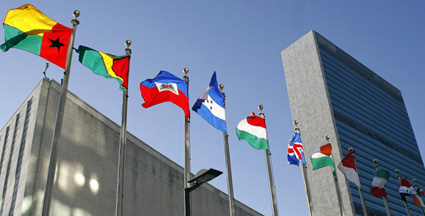 The U.N. Human Rights Council used research by Texas Baptists in its report detailing human rights abuses in Eritrea.the U.N. Human Rights Council’s commission of inquiry on human rights in Eritrea relies both on a 2013 report from the BWA Commission on Religious Freedom and additional firsthand testimony of persecuted people, collected by one of its members who traveled to Eritrean refugee camps in neighboring Ethiopia.
The U.N. Human Rights Council used research by Texas Baptists in its report detailing human rights abuses in Eritrea.the U.N. Human Rights Council’s commission of inquiry on human rights in Eritrea relies both on a 2013 report from the BWA Commission on Religious Freedom and additional firsthand testimony of persecuted people, collected by one of its members who traveled to Eritrean refugee camps in neighboring Ethiopia.
Although the commission of inquiry was unable to visit Eritrea—and the Eritrean government did not cooperate with the investigation—it obtained firsthand testimony from 550 confidential interviews and received 160 written submissions of testimony—including the BWA research.
“In its determination to safeguard its own continued existence, the government has proceeded to establish a system by which individuals in society are silenced and isolated through the organized repression of the freedoms of opinion, expression, assembly, association and religion,” the U.N. report states.
Human rights violations detailed in the report include arbitrary arrest and detention, extrajudicial executions, torture and forced labor.
 Patty LaneThe Eritrean government “perceives religion as a threat to its existence and has set about controlling it and its expressions,” the report states. Eritrea officially recognizes only four religious groups—Eritrean Orthodox, Roman Catholic, Lutheran and Sunni Islam.
Patty LaneThe Eritrean government “perceives religion as a threat to its existence and has set about controlling it and its expressions,” the report states. Eritrea officially recognizes only four religious groups—Eritrean Orthodox, Roman Catholic, Lutheran and Sunni Islam.
“The religious gatherings of nonauthorized denominations are prohibited,” the report says. “Religious materials are confiscated. Adherents are arbitrarily arrested, ill-treated or subjected to torture during their detention, and prisoners are coerced to recant their faith. Many religious followers have been killed or have disappeared.”
Individuals detained on religious grounds “are systematically kept incommunicado for periods that can last several years,” the report notes.
In its recommendations, the commission of inquiry urges respect for the religious freedom of all faiths. It calls on the Eritrean government to “take immediate measures to end all religious persecution, particularly for specific religious groups, such as Jehovah’s Witnesses, Pentecostals and other nonauthorized religious groups; and immediately restore citizenship and related rights.”
Sign up for our weekly edition and get all our headlines in your inbox on Thursdays
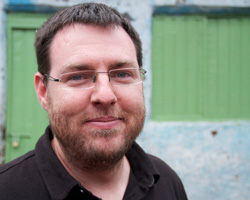 Elijah BrownTwo years ago, Patty Lane, director of intercultural ministries with the Baptist General Convention of Texas, approached the BWA Commission on Religious Freedom, bringing a request for help from Eritrean refugees in Texas Baptist churches.
Elijah BrownTwo years ago, Patty Lane, director of intercultural ministries with the Baptist General Convention of Texas, approached the BWA Commission on Religious Freedom, bringing a request for help from Eritrean refugees in Texas Baptist churches.
BWA subsequently published on its website a report, Eritrea: Twenty Years of Ongoing Repression, drafted by Elijah Brown, then a professor at East Texas Baptist University. Brown, a member of the BWA commission, now is chief of staff at the 21st Century Wilberforce Initiative, a Christian human rights group headed by former BGCT Executive Director Randel Everett.
“For more than two decades, President Isaias Afwerki and the Popular Front for Democracy and Justice (PFDJ) have systematically committed flagrant abuses of human rights,” the BWA report states. “While violations remain pervasive, perhaps no community has suffered more thoroughly and completely than the numerous adherents of a variety of religious communities deemed unacceptable by the illiberal government.”
The report asserts Eritrea held 2,000 to 3,000 religious prisoners in violation of Article 18 of the Universal Declaration of Human Rights.
“These religious prisoners are frequently beaten and tortured, prohibited from praying or singing aloud, and denied access to religious books,” the report states.
The BWA report calls for the immediate release of religious prisoners and it urges an arms embargo of Eritrea, targeted economic sanctions on senior Eritrean government officials involved in violating human rights and the coupling of government assistance to improved religious freedom in Eritrea.
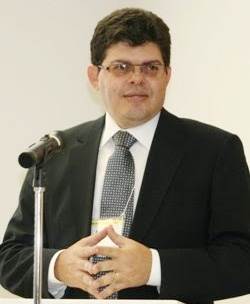 Raimundo BarretoRaimundo Barreto, then director of the BWA Division on Freedom and Justice, presented the report in abbreviated form to the International Religious Freedom Roundtable in Washington, D.C., in December 2013. The following month, the interfaith group sent a letter about the situation in Eritrea to U.S. Secretary of State John Kerry, the U.S. Mission to the United Nations and the U.N. Special Rapporteur on Freedom of Religion and Belief.
Raimundo BarretoRaimundo Barreto, then director of the BWA Division on Freedom and Justice, presented the report in abbreviated form to the International Religious Freedom Roundtable in Washington, D.C., in December 2013. The following month, the interfaith group sent a letter about the situation in Eritrea to U.S. Secretary of State John Kerry, the U.S. Mission to the United Nations and the U.N. Special Rapporteur on Freedom of Religion and Belief.
BWA commissioners subsequently presented the report to high-ranking officials in the United Kingdom and Germany. In February 2014, BWA partnered with the Cooperative Baptist Fellowship in presenting its report to the Eritrean Universal Periodic Review, conducted by the United Nations in Geneva.
Four months later, research funding provided by ETBU enabled Brown to spend five days in two Eritrean refugee camps, interviewing people persecuted by the government. He characterized the camps he visited as “isolated islands of stagnation.”
“I was particularly disturbed by the situation facing many of the Christian women in these refugee camps,” Brown said.
“I met multiple women whose husbands had decided to try and find a viable family solution by journeying either to Israel or to Libya with an aim of crossing the Mediterranean into Europe. The hope is that once this journey is complete, the husband will be able to secure a job and call for the rest of the family to join him. Unfortunately, this seldom occurs.
“The reality is that women are left in the refugee camp to raise their children alone and without an option of moving forward in a new relationship as they wait in hope to hear from their husband. If a husband is trafficked or killed along the way, unable to secure a job, or simply decides to abandon the family, their wives often have no idea what has happened and may go years without information and are unable due to their faith and marital commitment to move forward.”
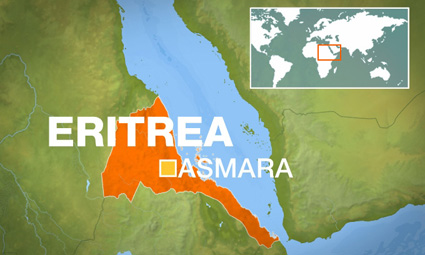 Map of Eritrea (UN Image)The following February, Brown—acting in his role at the 21st Century Wilberforce Initiative—submitted 19 firsthand testimonies to the U.N. commission of inquiry. In addition to testimony by 15 persecuted Christians, his report also includes accounts by one child soldier, one persecuted Muslim dissident and two political dissidents.
Map of Eritrea (UN Image)The following February, Brown—acting in his role at the 21st Century Wilberforce Initiative—submitted 19 firsthand testimonies to the U.N. commission of inquiry. In addition to testimony by 15 persecuted Christians, his report also includes accounts by one child soldier, one persecuted Muslim dissident and two political dissidents.
“The prison officials treated the Christian community differently than non-Christian prisoners,” one eyewitness testified. “For instance, evangelical Christians in prison were denied access to visits from families and friends. However, other faith groups were granted the privilege of seeing their family members and receiving food items.”
Christian prisoners often were kept in solitary confinement, another witness testified.
“As a follower of Christ, I was often not allowed to share a cell with another person,” the individual stated. “The guards were afraid I would proselytize. I did not have a Bible during this period. In fact, possession of a Bible would result in a punishment of several additional years of imprisonment.
“The officials kept telling me that I could not interact with others, because I would spoil them, and that my only chance for freedom was to betray Christ.”
The U.N. commission report includes at least 10 direct quotes from six testimonies Brown submitted. He applauded the report as “a significant and substantial step in the right direction.”
“This was the highest-level and most far-reaching investigation into abuses committed by the Eritrean government against its people ever pursued,” Brown said. “Its scope is comprehensive in nature and on multiple occasions highlighted the situation facing religious minorities throughout the report.
“While it may not have explicitly called for the immediate release of religious prisoners, that intent is fully present, and any reasonable reading of the report will immediately see that the dangers and abuses facing religious minority communities is acknowledged and embraced.
 Karen Bullock“In its breadth and depth, this report exposes and generates significant awareness and is a clarion call for the government of Eritrea and the international community alike to begin a transformative process of justice, restoration and societal development.”
Karen Bullock“In its breadth and depth, this report exposes and generates significant awareness and is a clarion call for the government of Eritrea and the international community alike to begin a transformative process of justice, restoration and societal development.”
Church historian Karen Bullock with the B.H. Carroll Theological Institute chaired the BWA Commission on Religious Freedom. She hailed the contributions of multiple partners—including BWA, BGCT, CBF, ETBU, the 21st Century Wilberforce Initiative and church leaders in the United States, Europe and Africa—along with Eritrean refugees, in bringing to light human rights violations.
“It is clear that gross human rights violations have occurred, and that some of these violations cross the threshold of crimes against humanity,” Bullock said. “This report is the most comprehensive and detailed account of the violations perpetrated by the Eritrean government.”
Lane, whose initial request on behalf of Eritreans in Texas sparked the BWA research, expressed appreciation.
“It has been so exciting to see the benefit of the work of the Baptist World Alliance in the situation in Eritrea,” she said. “Their crisis has been on my heart for so many years, as the persecution has continually gotten worse.
“For the religious liberty commission to take this on under Karen’s leadership and Elijah’s expertise has been amazing and such an encouragement to the Christians here in Texas.
“We are a worldwide family, and when we share each other’s burdens, pray and work together, God uses us to be his hands and feet and voice in the world. It is such an honor to be part of this work.”
Brown characterized the release of the U.N. report as a potentially “transformative moment.”
“It could galvanize international advocates and policymakers to begin developing a more strategic and comprehensive approach to Eritrea,” he said. “In order for this to occur, there is a real need for individuals to make this a priority issue. This is one of the world’s most brutal and oppressive regimes, and yet it is probably the most neglected. This is an important opportunity to adjust course.”






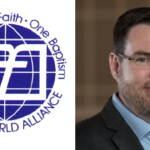









We seek to connect God’s story and God’s people around the world. To learn more about God’s story, click here.
Send comments and feedback to Eric Black, our editor. For comments to be published, please specify “letter to the editor.” Maximum length for publication is 300 words.